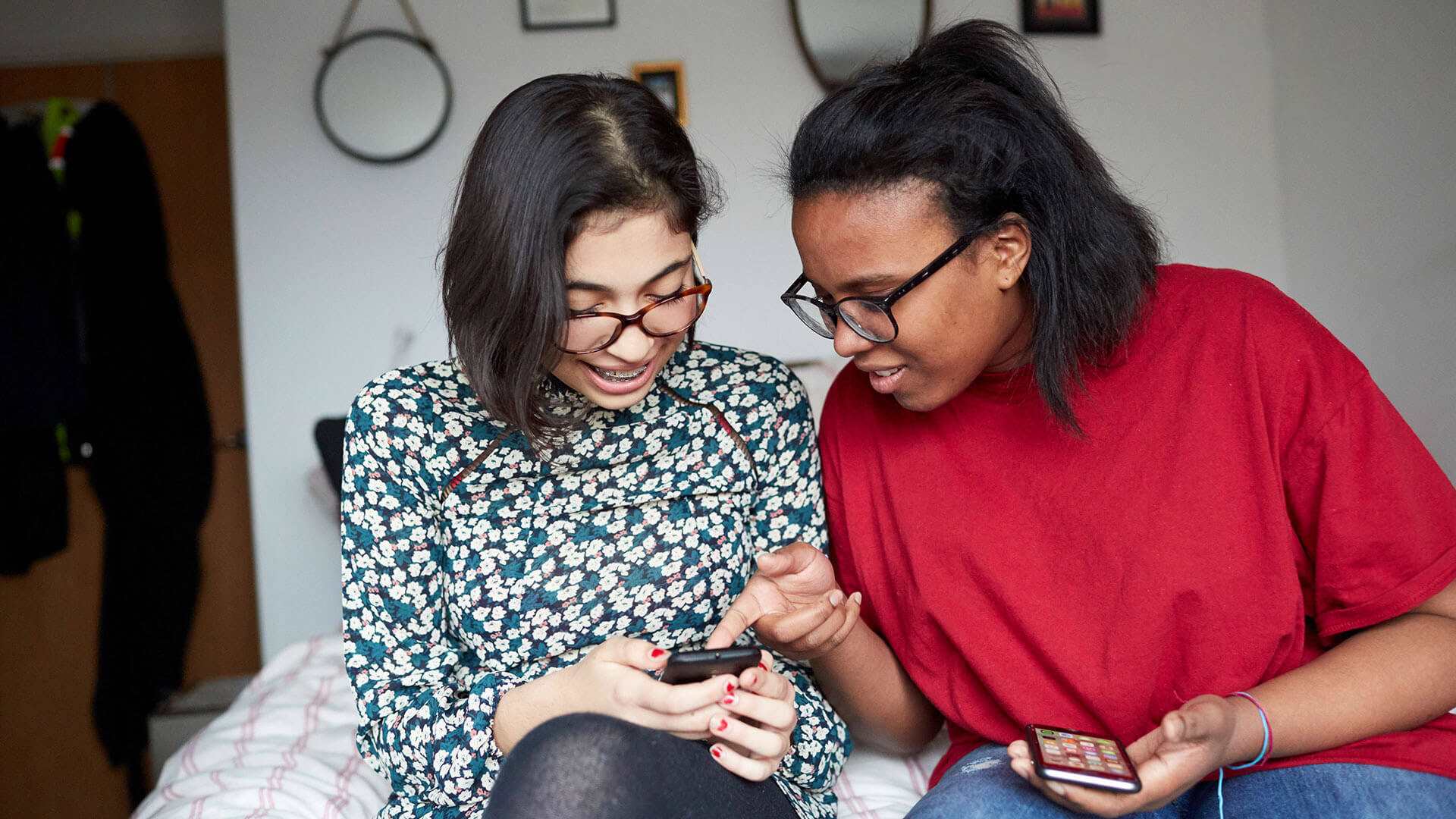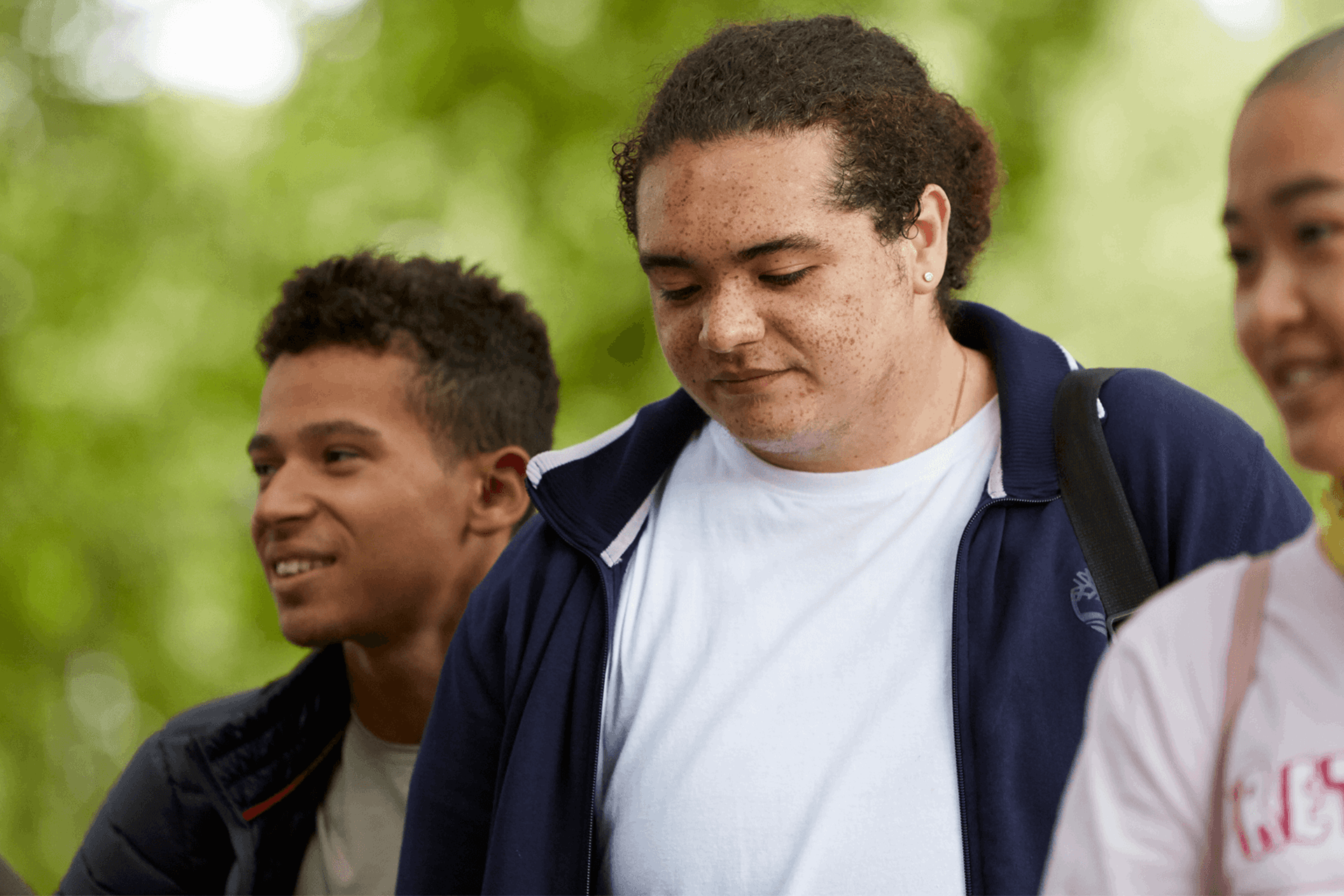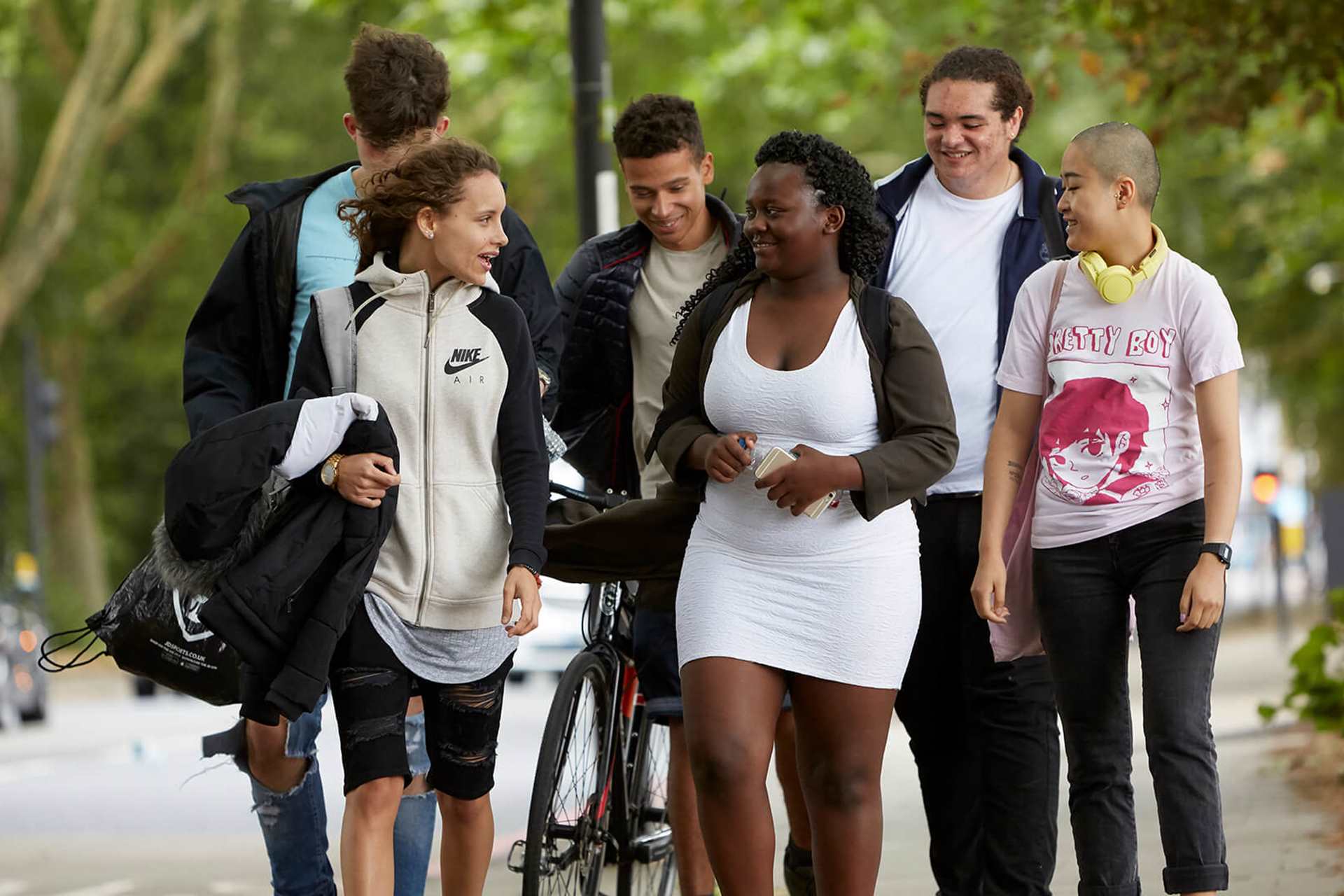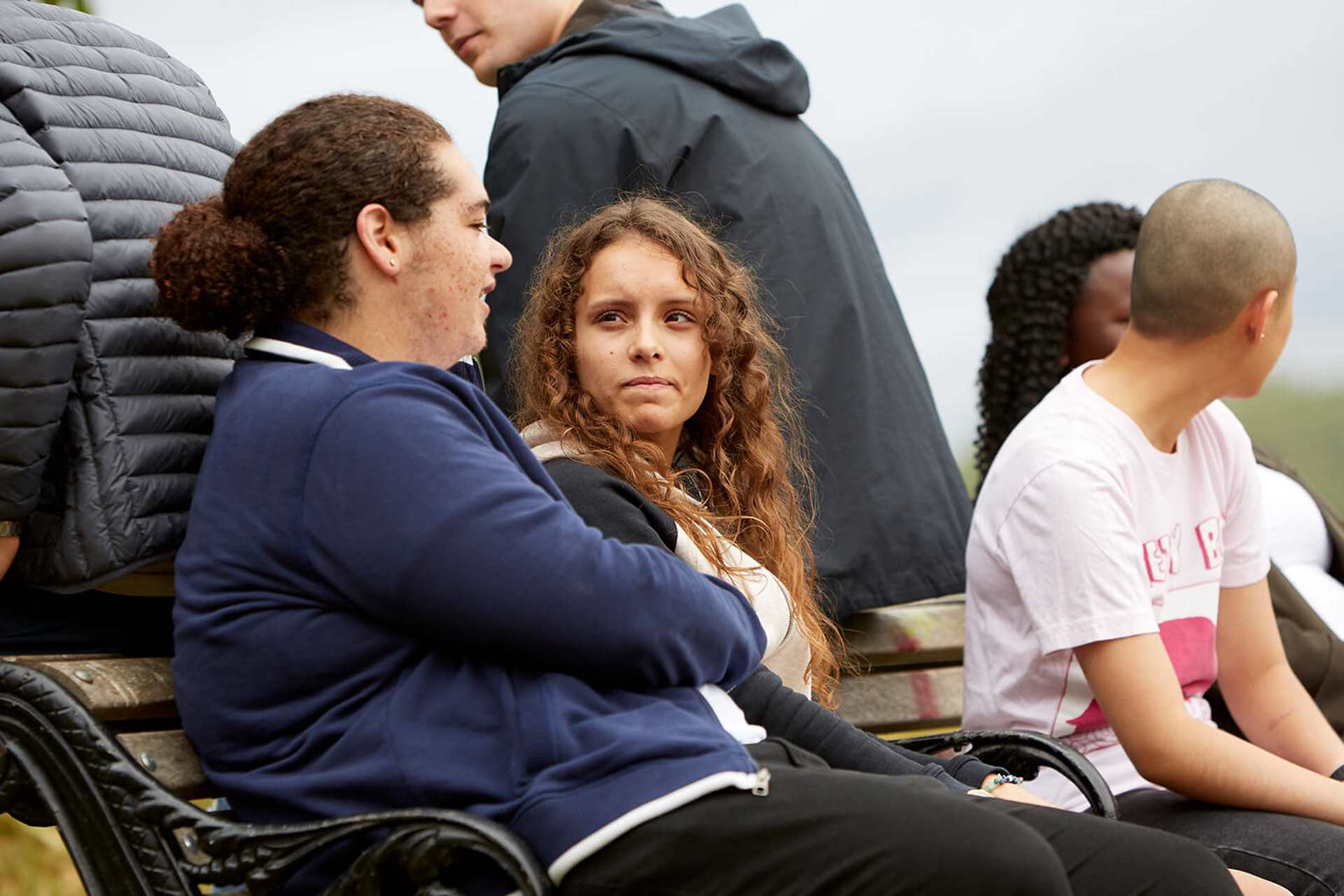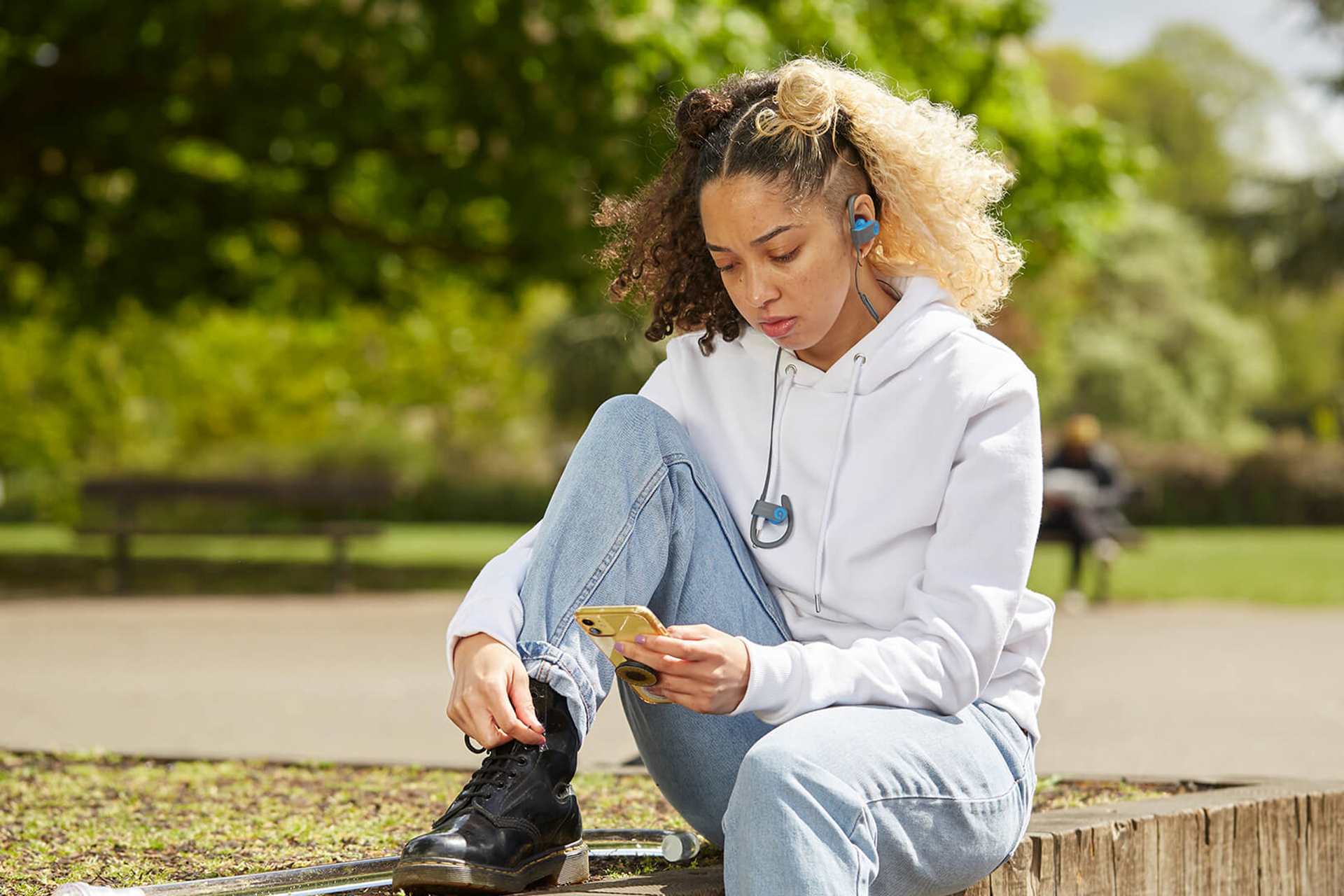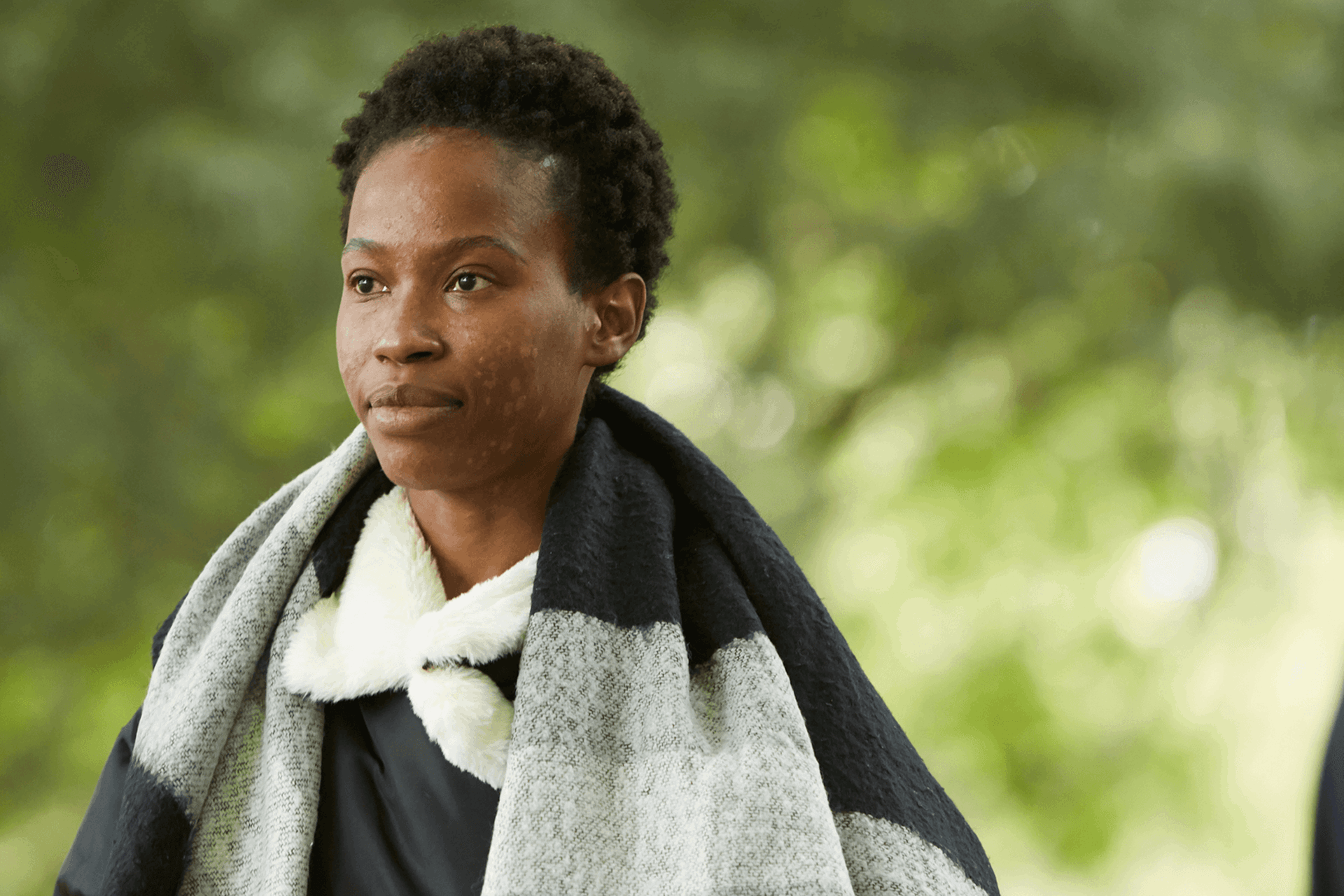Topics mentioned: body image, self-esteem, self-care
Author: Young people
About: Are you watching Love Island? We asked a group of young people to share their tips for looking after your mental health while watching the reality TV show.
Almost a quarter of young people say that reality TV makes them worry about their body image.
As Love Island hits our screens for another summer, many of us will be hooked on following the sun-soaked drama for the next eight weeks.
But recent research by the Mental Health Foundation suggests that almost a quarter of young people say that reality TV makes them worry about their body image,
We asked a group of young people to share their tips on how you can look after your mental health while watching shows like Love Island. Here are six things that Laura, Honor, Michaela and Maya want you to remember.
There is no such thing as a perfect body
It can be easy to compare how we look to the contestants that we see on Love Island or other reality TV shows. But it’s important to remember that there isn’t a single type of beauty – everyone sees it differently. And there simply isn’t a right or wrong way to look.
As Laura says:
“Each night on Love Island, we see what society considers the ‘perfect’ body, which can seem unachievable to us viewers watching at home. It’s easy to compare our own bodies to the contestants on Love Island."
"I want to remind you that nobody has the ‘perfect body’. The contestants we see on Love Island may have desirable bodies, however they could still have their own insecurities.”
The contestants have thoughts, feelings and mental health too
Maya says:
“While watching Love Island and being mindful of our own mental health, we must also remember that the contestants we are watching also have thoughts and feelings. If someone on the show does something wrong, don’t immediately take to Twitter or Instagram to talk badly about them."
"We should treat them just as we would want to be treated, remembering that the contestants are human beings with feelings that can make mistakes and can be hurt by what we write online. “
Love Island is a show, not real life
Remember that what you see on the show is one hour out of a 24-hour day, and is edited and produced for entertainment.
As Michaela says:
“We have to acknowledge that this is a show, and not real life. It is not reality and it is not sustainable. We see this with how few couples remain together in the real world. We have to be aware of this so that we don’t idealise what we see on the show.”
Remember that what you see on the show is one hour out of a 24-hour day, and is edited and produced for entertainment.
This isn't the only way to find love
Maya says:
“The show makes it seem easy to find love, but it’s not an accurate representation of how dating and love works in reality. With people spending every day together for six weeks, it’s a high-speed version of dating, and it's fast and intense. If you’re feeling pressured about finding someone, remember you still have so much time.”
Build your confidence while watching
If you find yourself struggling with comparison while watching the show, you could try this tip from Laura:
"Every time you have a thought about how good someone else looks on the show, write down one thing that you like about your own body."
Surround yourself with people who empower you
Honor says:
“Remember that you are not an ‘outsider’ if you don’t fit in with what’s shown to you on reality television. If you are struggling with self-esteem, surround yourself with people who make you feel strong and empowered.“
Every time you have a thought about how good someone else looks on the show, write down one thing that you like about your own body.
Where to get help
If you are struggling with your mental health, we have lots of information and advice that can help.
Where to get help
However you're feeling, there are people who can help you if you are struggling. Here are some services that can support you.
-
Beat
Offers information and support for anybody affected by eating disorders.
One-to-one web chat available. They also run a range of online support groups, which are all fully moderated and anonymous.
Enter your postcode in the HelpFinder to see what eating disorder support is available in your area.
View their information on helpline accessibility and confidentiality.
- Opening times:
- 365 days a year - weekdays (9am - 8pm); weekends (4pm - 8pm)
-
Childline
If you’re under 19 you can confidentially call, chat online or email about any problem big or small.
Sign up for a free Childline locker (real name or email address not needed) to use their free 1-2-1 counsellor chat and email support service.
Can provide a BSL interpreter if you are deaf or hearing-impaired.
Hosts online message boards where you can share your experiences, have fun and get support from other young people in similar situations.
- Opening times:
- 24/7
